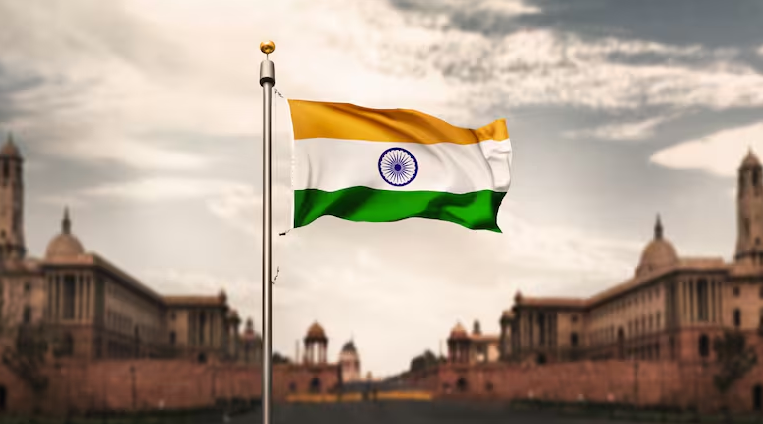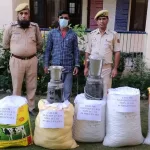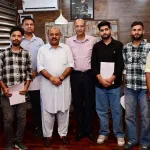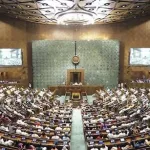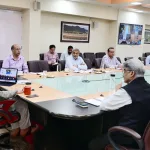We, the People of India i.e. Bharat—celebrate 76th Republic Day on January 26, 2025. It is celebrating our Constitution which came into force on this day 76 years ago. How was this longest document prepared within the shortest period of over two years and the changes it witnessed over the years—have a look.
The 299-member Constituent Assembly was constituted to draft Constitution for Independent India on August 29, 1947. This assembly assigned the task of drafting the Constitution to a team under the Chairmanship of Dr Bhim Rao Ambedkar.
The Drafting Committee also comprised of other members like Alladi Krishnaswami Ayyar,N Gopalaswami Ayyangar, KM Munshi, Mohammad Saadulla, B L Mitter, DP Khaitan and BN Rau, who reviewed the draft text in the capacity as the Constitutional Advisor.
The Constituent Assembly or the drafting committee took 2 years, 11 months and 17 days to draft the Constitution holding 11 sessions over 165 days with 114 days dedicated on the Draft Constitution. The committee played a major role in ensuring the Constitution reflected India’s diverse cultural, social, and political fabric.
The Constituent Assembly of India headed by Dr Rajendra Prasad adopted the draft of the Constitution of India on November 26, 1949. The final version of the Constitution was signed on January 24, 1950, and it came into effect on January 26, 1950. This constitution is the longest written constitution among all written constitutions of sovereign nations. For example, the Constitution of United States of America has only seven Articles.
The original constitution of India began with the Preamble which read as “ We, the People of India, having solemnly resolved to constitute India into a Sovereign Democratic Republic and to secure to all its citizens—Justice, social, economic and political: Liberty of thought, expression, belief, faith and worship: Equality of status and of opportunity: and to promote among them all Fraternity assuring the dignity of the individual and to promote among them all Fraternity assuring the dignity of the individual and the unity of the Nation: In our constituent assembly this 26th of November, 1949, do hereby adopt, enact and to give to ourselves this constitution”.
This preamble was changed in the 42nd Constitutional amendment by the then central government led by Prime Minister Indra Gandhi in 1976 with the incorporation of words “Socialist, Secular”. The Constitution of India replaced the Government of India Act of 1935. India celebrates its Constitution Day on November 26 and Republic Day on January 26.
The Constitution of India adopted in 1949 originally had 395 articles, but the number of articles increased due to amendments, the very first amendment took place in 1951 when Jawahar Lal Nehru was the Prime Minister. The amendments of the Constitution go on since then as per situation.
For example–The reservation of seats for women in Parliament and state assemblies in India is provided under 106th Constitutional Amendment Act, 2023 means over 100 amendments have taken place in the Constitution. Article 368 of the Constitution itself permits amendments in the Constitution.
The most important part of the Constitution–Article 12 to 32 contained in Part III of the Constitution deal with Fundamental Rights. These are: Right to equality, including equality before law, prohibition of discrimination on grounds of religion, race, caste, sex or place of birth, and equality of opportunity in matters of employment.
These six fundamental rights–Right to equality fall under Article 14–18, Right to freedom (Article 19–22) Right against exploitation (Article 23–24),Right to Freedom of Religion (Article 25-28) Cultural and Educational Rights (Article 29-30), Right to Constitutional Remedies (Article 32).
The celebration of Republic Day knows no bounds for any patriotic Indian living anywhere in the world, but questions remain when it comes to rights and freedoms guaranteed to every Indian by the founding fathers of our constitution. And the questions are—has the constitution come to the rescue of the innocent people whose lives anti Indian take very easily. For instance in 1998, a day before Republic Day i.e. on 25th of January, 23 Kashmiri Hindus were massacred by the terrorists in Wandhama village in Kashmir. The list is endless. Where were the protectors of the Constitution—the rights and the freedoms when such incidents take place and precious innocent lives snatched for no fault of theirs?
Different Prime Ministers have overseen amendments during their tenures. Here is a summary of key amendments:
Jawaharlal Nehru (1947–1964)
Amendments: 1st to 17th
- 1st Amendment (1951): Restricted fundamental rights in the interest of public order and added the Ninth Schedule to protect laws from judicial review.
- 4th Amendment (1955): Restricted property rights and expanded the scope of state powers.
Lal Bahadur Shastri (1964–1966)
Amendments: None
Indira Gandhi (1966–1977, 1980–1984)
Amendments: 24th to 42nd, and 44th
Key Highlights:
- 24th Amendment (1971): Gave Parliament power to amend any part of the Constitution.
- 42nd Amendment (1976): Known as the “Mini Constitution,” it strengthened the central government and curtailed judicial review– it introduced changes like:
- Addition of words “Socialist,” “Secular,” and “Integrity” to the Preamble. Incorporating into the Constitution, the Fundamental Duties under Article 51A. Some duties have been specified for the people towards the nation.
- Shifted several subjects from the State List to the Concurrent List.
- 44th Amendment (1978): Undid many provisions of the 42nd Amendment, protecting fundamental rights.
Morarji Desai (1977–1979)
Amendments: 43rd and 44th
Key Highlights:
- Restored democratic values and reduced emergency powers.
Rajiv Gandhi (1984–1989)
Amendments: 52nd and 59th
Key Highlights:
- 52nd Amendment (1985): Introduced the Anti-Defection Law.
- V. Narasimha Rao (1991–1996)
Amendments: 73rd and 74th
Key Highlights:
- Empowered local self-governments through Panchayati Raj and Municipalities.
Atal Bihari Vajpayee (1998–2004)
Amendments: 86th and 91st
Key Highlights:
- 86th Amendment (2002): Made education a fundamental right for children aged 6-14 years.
Manmohan Singh (2004–2014)
Amendments: 92nd to 99th
Key Highlights:
- 97th Amendment (2011): Recognized cooperative societies in the Constitution.
- 99th Amendment (2014): Introduced the National Judicial Appointments Commission (later struck down).
Narendra Modi (2014–Present)
Amendments: 100th to 105th
Key Highlights:
- 101st Amendment (2016): Introduced Goods and Services Tax (GST).
- 105th Amendment (2021): Restored states’ rights to identify socially and educationally backward classes.
- 106th Amendment (2023): Reservation for women in Parliament and state assemblies.
Each amendment reflects the priorities and challenges faced by governments during their tenure.
Seven amendments were carried out under different regimes related to extension of reservation for SC/ ST like in 8th amendment in 1960, 23rd in 1969, 45thin 1980, 62nd in 1989, 79th in 1999, 95th in 2010 and 104th amendment in 2020 extending reservation for SC/ST for ten years in every such amendment.
The amendments in the constitution have been a continuous process since its enforcement with the changing situation like due to the introduction of technology. It is believed very first amendment in our constitution was on the basis on observations made by the Supreme Court while hearing some cases related to fundamental rights.
It may be mentioned Mehr Chand Mahajan’s tenure as a judge of Supreme Court of India from 1948 to 1954 and later as Chief Justice of India from January 4, 1954 to December 22, 1954 was marked by several landmark judgments that have had a lasting impact on Indian jurisprudence.
One of his most notable contributions was his focus on upholding fundamental rights. As a judge, he frequently emphasized the importance of balancing individual freedoms with societal welfare. His judgments often highlighted the principles of equity, justice, and good conscience, making him a key figure in shaping India’s post-independence legal framework.
One of his most impactful judgments was in State of Madras v. Champakam Dorairajan (1951).
This case dealt with the issue of caste-based reservations in educational institutions. Champakam Dorairajan, a Brahmin woman, challenged the State of Madras’ order that reserved seats in government colleges on the basis of caste, which restricted her admission opportunities.
Judgment
The Supreme Court, with Mehr Chand Mahajan as part of the bench, struck down this reservation order, ruling that it violated Article 15(1) of the Indian Constitution, which prohibits discrimination on grounds of religion, race, caste, sex, or place of birth. This judgment reaffirmed the constitutional principle of equality and ensured that no discriminatory practices could override fundamental rights. The judgment also exposed the need for affirmative action to uplift historically disadvantaged communities, leading to the First Amendment of the Indian Constitution (1951), which added Article 15(4), enabling the State to make special provisions for the advancement of socially and educationally backward classes.
In another landmark judgment in a case regarding freedom of speech –Brij Bhushan vs State of Delhi (1950). The case revolved around the pre-censorship order issued by the Delhi government against the magazine organizer. The magazine challenged the restriction, claiming it infringed on their fundamental right to freedom and expression under Article 19(1)(a) of the Indian constitution. The Supreme Court struck down the pre-censorship order as unconstitutional, ruling that such restrictions were not in line with Article 19(1)(a) of the Indian Constitution and could not be justified under the reasonable restrictions provided in Article 19(2). The judgment was among the first to uphold freedom of speech as a fundamental right ensuring the autonomy and independence of the press in a democratic set up.
While celebrating our constitution, the pious document for every Indian, it is time whatever commitments and guarantees have been given to Indian citizens are strictly enforced and implemented. How can an ordinary citizen feel safe, enjoy freedom of speech and expression, have access to livelihood, good education and healthcare are some of the issues though guaranteed by the founding fathers of the constitution which need strict compliance from We, the people of India, which include the state also.
(For awareness purpose only)


